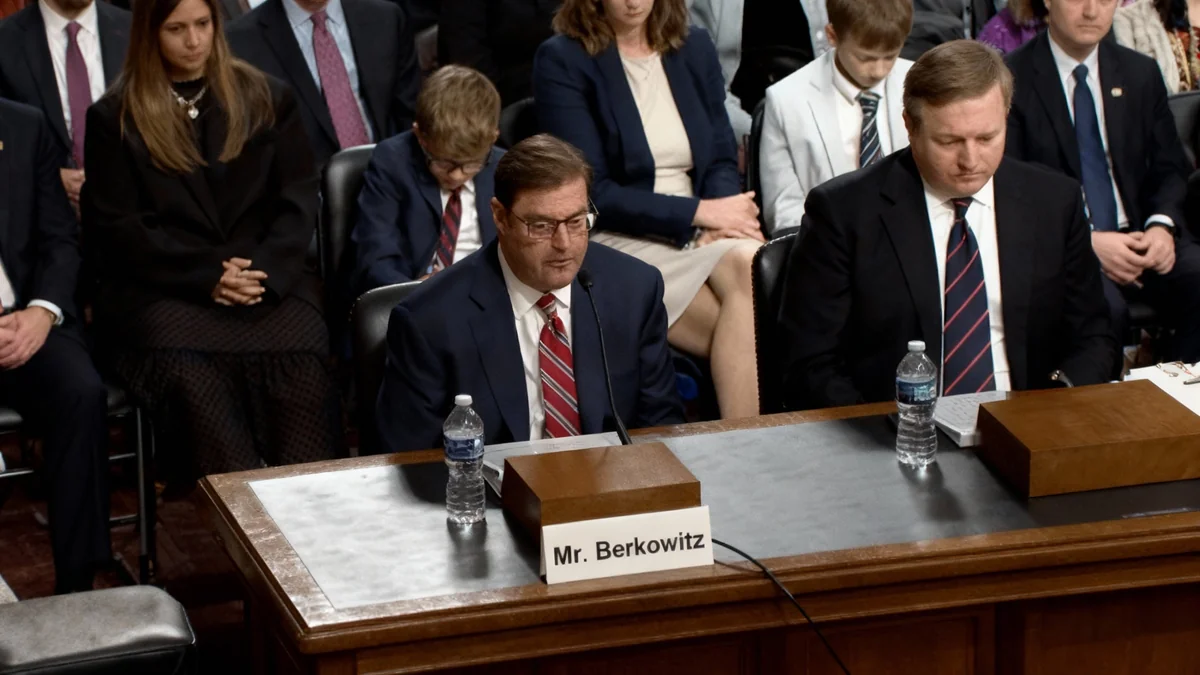A cross-party parliamentary committee has issued a stark warning that the United Kingdom must act decisively to prevent its space ambitions from falling behind global competitors. A new report from the House of Lords committee highlights a significant gap between the government's 2021 National Space Strategy and its actual implementation, urging immediate action to secure the nation's role in the rapidly growing space economy.
The report, titled 'The Space Economy: Act Now or Lose Out,' acknowledges areas of progress but concludes that a lack of clear priorities, coordination, and sustained funding is undermining the UK's potential. Without a change in course, the country's current standing could be at risk.
Key Takeaways
- A parliamentary report warns the UK is failing to meet the goals of its 2021 National Space Strategy.
- Concerns were raised about a growing dependency on foreign companies like SpaceX for launch services.
- The committee calls for a dedicated Space Minister and a reformed long-term funding model.
- The UK's 5% share of the global space economy is at risk of eroding without swift government action.
A Strategy Facing Turbulence
Three years after the government unveiled its ambitious National Space Strategy, a House of Lords committee has found that progress has been uneven. The vision to establish the UK as a major global space power has struggled to translate into tangible, large-scale outcomes.
Baroness Ashton, the committee chair, emphasized the urgency of the situation.
"Space is transforming the world, and our report found much to be positive about. Britain should play a role in leading that transformation or risk being left behind."
The investigation did identify several bright spots. The UK has taken an early lead in the emerging market for in-orbit servicing and manufacturing. There is also growing momentum behind developing domestic launch capabilities from UK spaceports. However, these successes are overshadowed by broader strategic challenges.
Steady but Slow Growth
The UK's space economy has grown at an average of 3.3% annually since the 2009-2010 financial year. While positive, the committee fears this pace may not be enough to keep up with the explosive growth of the global market.
The SpaceX Dilemma
A significant portion of the report focuses on the UK's increasing reliance on foreign providers, particularly the American company SpaceX. The dominance of its launch services and its Starlink satellite broadband network presents a strategic vulnerability.
The committee's report states, "Whilst there is no immediate indication that the UK’s access to SpaceX’s services could be compromised, future plans for UK space capabilities should reckon with the impacts of UK dependence on SpaceX."
The report strongly recommends that the government conduct research into the potential consequences of losing access to SpaceX services. It calls for a clear strategy to ensure the UK has access to "diversified and/or sovereign services where possible," particularly for critical national infrastructure.
Uncertainty Over UK Launch
This dependency also raises questions about the UK's own sovereign launch ambitions. The 2021 strategy aimed for the UK to become a leading provider of small satellite launch services. Yet, the committee found that the market opportunities remain unclear and that the government has not clarified its objectives for the program or determined if multiple domestic spaceports are necessary.
Redefining Economic Goals
The report highlights a notable shift in the UK's economic targets. The original goal of capturing 10% of the global space economy by 2030 was officially abandoned in the 2021 strategy.
A Shifting Target
During evidence given to the committee in March, UK Space Agency (UKSA) chairman Lord Willetts explained that the global market is expanding so rapidly that simply maintaining the UK's current 5% share represents a massive economic opportunity. He noted forecasts suggesting the global space economy could double or even triple by 2030.
While maintaining a 5% share of a rapidly growing pie is a significant prize, the committee warns that even this more modest goal could be in jeopardy without decisive leadership and effective delivery of the national strategy.
Further concerns were raised about recent organizational changes. The decision to integrate the UK Space Agency into the new Department for Science, Innovation and Technology could, according to the report, blur lines of accountability and reduce the agency's operational independence at a critical time.
Charting a New Course
To get the strategy back on track, the committee outlined several key recommendations for the government. The central theme is a call for clear, funded, and coordinated action to turn ambition into reality.
The report urges the government to clarify its position on participating in post-Brexit European space programs, such as the Galileo navigation system, which could bolster UK capabilities through international collaboration.
Key Recommendations for Action:
- Appoint a Dedicated Space Minister: A minister and a "Space Champion" should be appointed to coordinate policy across government departments and engage with industry.
- Reform Funding Models: Move away from small, short-term grants toward a long-term procurement model that can attract significant private investment.
- Develop Detailed Plans: Create fully funded delivery plans for achieving specific national space capabilities.
- Establish a Space Skills Taskforce: A new taskforce is needed to address skills shortages and prioritize workforce development for the growing industry.
The committee's message is clear: the United Kingdom possesses the potential to be a leader in the new space age, but the window of opportunity is closing. Without a renewed focus and tangible action, it risks being left on the launchpad while other nations soar ahead.





